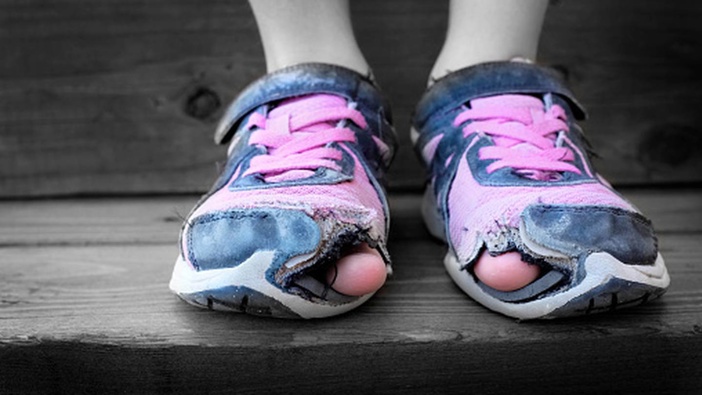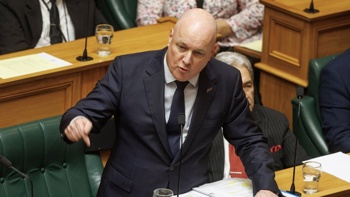Follow
the podcast on

Child advocates are slamming the Government for its "unjustifiably slow" action on welfare reform, with a new report finding just four of 126 recommendations have been fully implemented.
And it found none the 42 key recommendations made by the Welfare Expert Advisory Group early last year have been achieved almost two years later.
The Child Poverty Action Group (CPAG) said "urgent systemic transformation" was needed for the Government to fulfil its promise of welfare overhaul and urged it to do more than "incremental tweaks".
The group today released an audit of how the recommendations made by the advisory group in February 2019 had been implemented and found it had delivered "remarkably little".
"Children cannot wait for more resources, as their minds, emotions, bodies are constantly
developing and are often permanently adversely affected by toxic stress and lack of
essentials," the report said.
"Our inadequate and ineffective welfare system continues to entrench poverty for
children. The stress for these children and families not only has immediate adverse impacts for their wellbeing, but has lasting effects on their lives and society; downstream costs in areas of health, education and justice alone are huge."
Social Development Minister Carmel Sepuloni said it could take upwards of 10 years to implement the welfare advisory group's recommendations. Photo / Mark Mitchell
The stocktake found four of the 126 detailed recommendations had been fully achieved, seven of the 42 key recommendations had been adopted with a further 12 "minimally" implemented.
And there was no evidence of any implementation at all for more than half (23).
The 11-person panel of academics, social advocates, economists and business leaders was appointed in 2018 and tasked with conducting a wide-ranging review of the welfare system.
After the advisory group recommended an extra $5.2 billion a year for social welfare, with an immediate increase in main benefits ranging from 17 to 47 per cent. At the time Social Development Minister Carmel Sepuloni said it could take upwards of 10 years to achieve and embed.
But the report's authors, Innes Asher, who served on the Welfare Expert Advisory Group, and Caitlin Neuwelt-Kearns, said a 10-year timeframe for welfare reform was "unreasonable and inappropriate" given the scale of urgent need.
And there appeared to be "little urgency" in the last government's approach, they said.
"There is immediate severe need, and children cannot wait."
The Child Poverty Action Group says the Government is making only "incremental tweaks" to the welfare system. Photo / Getty Images
CPAG was among the 53 organisations which penned an open letter to Prime Minister Jacinda Ardern urging her to raise benefits by Christmas but she ruled it out.
The group today called on Labour to honour its election promise to "continue overhauling our welfare system" beyond its commitment to let people earn more in paid work before their benefit starts reducing.
Labour's $1 billion election promise also committed to restoring an allowance for sole-parent beneficiaries going to university.
It identified the areas it saw as in the most urgent need for attention:
- Increasing benefits, lowering the abatement rates in Working For Families and establishing a minimum income standard.
- Ensuring disability supports were adequate because none of the recommendations for children affected by disability had been implemented.
- Amending the Social Security Act and ensuring that the welfare system fulfils the
principles of this amended Act. - Accelerating public housing development because
the current rate of building was insufficient.
- Change the rules so that relationship status has less effect on someone's income entitlement.
The report said increases in the 2018 Families Package and the 2020 benefit increase of $25 per week were "steps but inadequate to meet the income needs of children and their whānau and families".
"With the Labour Government now in its second term, elected by an overwhelming majority, the mandate for welfare overhaul is stronger than ever. The time has passed for incremental tweaks, and urgent systemic transformation is needed in order to fulfil its promise of welfare overhaul.
"Now that Labour has three more years to govern, it has the time required to implement some of this "fundamental change", unimpeded by the need to negotiate with coalition partners."
A Government spokesperson said it was proud of the work it has undertaken to date to improve the incomes of those on benefits.
In its first term the Government introduced the families' package, provided the winter energy payment to around one million New Zealanders and increased benefits by $25 a week in response to Covid.
Benefits will increase again in April as part of a new annual adjustment linked to increases in the average wage.
As well, about 85,000 sole parents were on average $101 a week better off and 315,000 beneficiary individuals and families were better off by $55 a week, the spokesman said.
"There is more work to be done, but significant change has been made already and more is being rolled out."
The Green Party's spokesman for social development Ricardo Menéndez March said the Welfare Expert Advisory Group recommendations were the "bare minimum" and the Government should at the very least commit to implementing them all to "fix the broken welfare system".
And in its Covid recovery the Government needed to focus on helping people who'd been in poverty for some time, rather than subsidising big businesses.
"Last term we heard a lot of excuses about New Zealand First being a block to a lot of reform that was required, but the challenge now is simply a matter of political will.”
Take your Radio, Podcasts and Music with you









